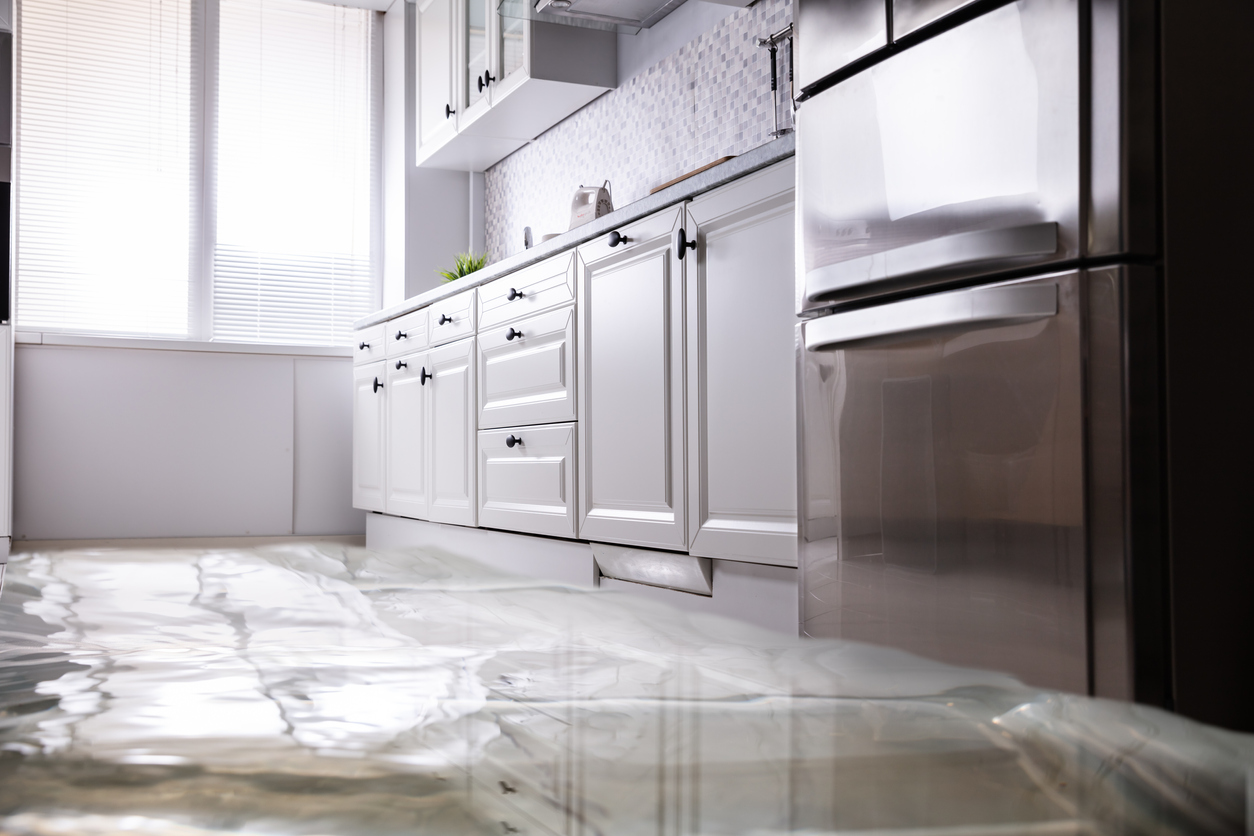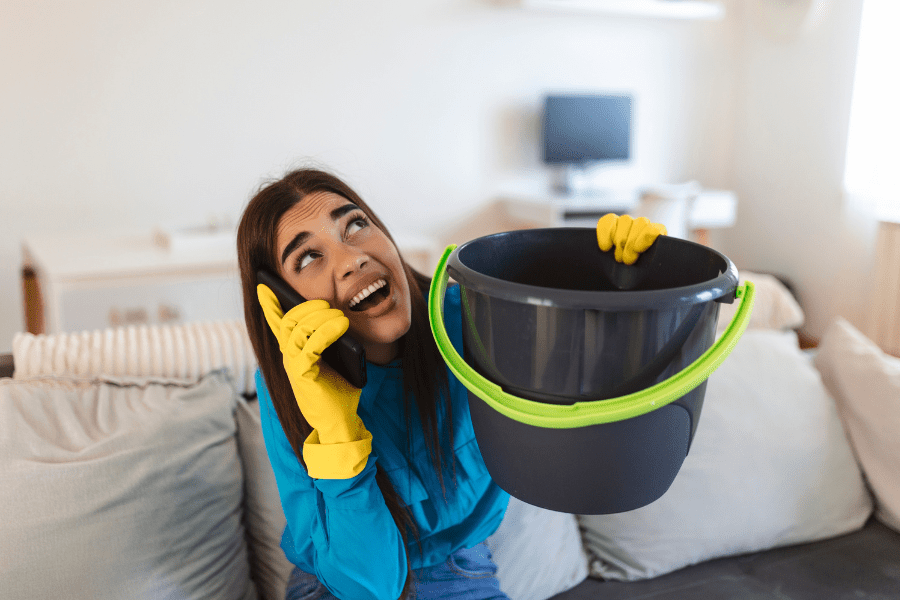The days with clouds and thunderstorms are happening increasingly frequently, sometimes even every single day. The month of June is drawing near, which means that the wet season will soon begin. This is the time of year when water from above (heavy rains) and below (floods) will put the structural soundness of human buildings to the ultimate test.
Condominiums, particularly those that have been constructed on land that is prone to persistent flooding, require special consideration. Will a condominium’s structural integrity be compromised by the occurrence of floods on such a regular basis? And if it happens, how will the people who own the individual units find out whether the building’s integrity has been compromised? Here are a few ways you will know if an area becomes an underwater attraction during the rainy season, which can help you avoid potential disasters like these when you look for a condo to purchase. Also keep on reading to discover just what it is that you must perform in order to clean up this messes.
How to deal with floods in your condo?

1. Putting the protection of everyone first.
If you find that there is flooding in your flat, the first and most crucial thing for you to do is to check on the well-being of everyone else who lives there with you. If you can do it, get everyone, including the animals, out of the way of the flooding.
Having significant flooding in condo as a result of a natural disaster is a considerably more dangerous situation than having contained flooding as a result of, for example, a leaking roof. Yet, placing an emphasis on safety must be the first thing you do.
In case there is severe condo flood, particularly as a result of a natural disaster, the most prudent thing to do is probably to evacuate your apartment and look for a secure location to stay in the interim.
2. Try to find the cause of the flooding.
There is no such thing as a same flood twice. There is a big difference between flooding brought on by burst pipe and flooding brought on by an overflowing sink. If you are able to pinpoint the precise cause of the flooding, you will have a much greater opportunity to solve the issue in a timely manner.
Let’s say, for example, that the flooding in your flat was caused by a toilet that was clogged and overflowing with waste. In order to prevent the flooding from growing any worse, you could try turning off the water supply to the toilet at the valve that is nearby.
3. Contact the owners.
The next thing you need to do is get in touch with the property manager if you rent rather than own the apartment you live in. Because the owner is held responsible for protecting the property from damage, including damage caused by floods, you will want to contact them as quickly as possible about the problem.
It is very likely that the landlord will dispatch maintenance professionals to promptly solve the issue that is causing the flooding. As soon as you become aware of the flooding in your home, you should get in touch with your landlord as soon as possible. This is true even if they are unable to begin the necessary repair right away.
4. Talk to your neighbors.
In the case that you have neighbors on the lower floors of your building, it is courteous to let them know about the flooding in the condo unit in the event that you experience it.
It is possible for water to enter their apartment through the ceiling, but the likelihood of this happening is low given the intensity of the flooding. By giving them advance notice, you will save them from experiencing that unpleasant surprise and offer them the opportunity to take some preventative measures.
5. Lock up your belongings.
In case your home becomes flooded, it is highly unlikely that you will be able to prevent water damages to all of your valuables. Despite this, you should remove from the flooded common areas anything you are able to in order to prevent the objects from being damaged. You have the option of putting them in a room that is far removed from the flooding or just elevating them to a location that the water is not likely to reach.
If the flooding forces you to evacuate your home, it is in your best interest to take with you as much of your valuable possessions as you can carry.
6. Write down the damage caused by the flooding.
Keeping a detailed record of everything that takes place during a flood in your apartment might not be the first thing that comes to mind, but it is vitally necessary. It’s possible that your landlord, the maintenance company, or even your insurance company will need to see this documents at some point in the future.
Walk around your flat and take pictures of all the damage that has been done. You should look for signs of water damage in common areas such as your carpet and make a note of the date and time that the damage was discovered. Even seemingly unimportant particulars at this moment may out to be significant in the future.
Unfortunately, it may not be possible to see the full extent of the damage caused by the flood right now, but you should document what you can.
7. Coordinate repairs.
In case your apartment is flooded, the unit owner will be responsible for organizing and paying for the necessary repairs. Therefore, it is important that you get in touch with them to coordinate the procedure. You need to be aware of the schedule for the maintenance and repair as well as what you may anticipate happening during the procedure.
After the repairs have been completed, if the apartment you live in requires a professional cleaning, you and your landlord can have a conversation about who will pay for that service.
How to keep your condo from getting flooded?
If you are presently experiencing flooding in your apartment or if you have previously dealt with a flooded apartment, it is safe to say that you do not ever want to experience flooding in your apartment again. The following is a list of things that can be done to prevent flooding in a condominium in the future:
1. Check on your things.
When their hoses spring a leak, household appliances like refrigerators and dishwashers can contribute to flooding. Keep an eye out for any potential issues so that you can address them in plenty of time to prevent the flat from leaking.
2. Don’t forget to turn off sinks and bathrooms.
It may seem obvious, but an astonishing amount of flooding incidents in apartments are brought on by sloppy tenants who forget to turn off the shower or sink after they have finished using them. When you are finished utilizing them, make sure to turn them off.
3. Keep up with the upkeep.
If you are a renter, the majority of maintenance falls under the purview of your landlord; but, if you keep up with whatever maintenance you are able to, you will be able to reduce the likelihood of recurrent flooding.
How to Clean Up After a Flood?
The cleanup of a flooded flat is not an easy chore, but it is essential to get started as soon as possible in order to prevent any further flood damage from occurring. After a flood has occurred in your apartment, here are some quick cleaning recommendations to get you started.
- To begin, get rid of as much water as you can. You can do this by using buckets, mops, and towels to get rid of as much water as you can. The more water you are able to extract, the less likely it is that mold and mildew will be a problem.
- Throw away everything that can’t be saved: Unfortunately, carpets and rugs that have been soaked through should be thrown away the majority of the time because they can’t be rescued. If, on the other hand, you are certain that the carpet or rug has not been contaminated with sewage water and that it has only been wet for a period of less than twenty-four hours, there is a chance that it can be saved. The best way to clean rugs that are kept outside is to hose them down, let them air dry, and then apply a disinfectant solution to them. It is recommended that you have professionals clean the carpets in your home.
- Clean and disinfect every surface It is important to clean and disinfect every surface in the area that was flooded, including the walls, floors, cabinets, and countertops.
What do I do if my upstairs neighbor flooded my apartment?
It can be really annoying when a neighbor in an apartment above you flood your unit. You will be relieved to know that there are a few things you can do to reduce the extent of the damage and protect yourself from incurring further fees.
First, make sure you document all damage. This consists of filming videos as well as taking images that show the water pouring from above. The filing of a claim with your insurance company will go more smoothly as a result of this.
After that, put aside as much money as you can. Reduce the amount of damage by eliminating anything that could be compromised by water source from the area where it could be damaged.
After you have finished doing that, you should get in touch with your landlord and your condo insurance cover. Because the landlord is the condo owner of the flat, it is imperative that you let them know about the water damage that has been occurring to the living space that you occupy. You should also get in touch with your condo insurance cover carrier as soon as possible so that they may dispatch a representative to your flat as soon as possible to assess the damage that has been done there.
How do you fix a leaking condominium ceiling?
A potentially hazardous issue might rapidly escalate if there is water seepage through the ceiling of your unit. Make immediate touch with the neighbor who lives upstairs unit. It’s possible that he or she is unaware of the issue. You should also notify the condo building maintenance staff.
The water damage that has been done to materials that are regarded to be the responsibility of the HOA needs to be addressed by their workers. For instance, in order to avoid rot and mold, the wood framing and insulation that is located between floors need to be properly maintained. The majority of the time, work of this nature is contracted out to a specialist in water damage restoration.
- These are just some of the risks that are associated with a ceiling in a condominium that is leaking.
- The structural supports of the ceiling become less stable when there is water damage.
- Tiles that have become waterlogged and heavy eventually fall from the ceiling.
- Electrocution concerns exist whenever there is standing water on the floor.
- A ceiling light fixture that has water dripping through it poses a potential fire hazard.
Most of the time, the condo owners of the unit directly above yours is the one who is responsible for water leaks that begin in their condo. Notify your flood insurance carrier, and be sure to keep them informed throughout the process of repairing the damage and cleaning it up.
5 common causes of water leaks from upstairs condo
The water damage that occurred in the downstairs unit could have been caused accidentally or it could have been the product of neglect. If you know what causes the problem in the first place, you’ll have a better idea of how long you might have to wait for a solution to be found and implemented. These are the most prevalent factors that lead to water damage in condos located on upper floors.
- Hoses that aren’t working properly on the washing machine or the dishwasher (or an overflowing dishwasher).
- Water damage around the showers and bathtubs.
- Plumbing issues such as clogged toilets or backed-up sewage lines.
- Burst pipes behind walls or under sinks.
- Negligent upkeep of the building’s plumbing systems.
Is your condo’s HOA responsible for water damage?
Condo insurance policy , which are comparable to homeowners insurance, may provide coverage for damage caused by water. It is possible that the condo’s homeowner association (HOA) will be responsible for any water damage that has been caused to your condo, but this would depend on the conditions of your condo’s HOA.
When does my condo’s HOA have to pay for water damage?
It is a good idea to become familiar with the condo insurance coverage offered by your HOA before acquiring a policy for your condo insurance, as this will help you make an informed decision. Certain kinds of water damage are the responsibility of the owners, and some HOAs offer limited coverage for certain eventualities, including shared roofs. In the event that a roof leak causes water damage to your condo, your condo association might contribute to the cost of repairs. However, given that no two HOA master rules are ever exactly the same, it is always in your best interest to read the policy in its entirety before buying a condo. This will offer you a sense of what is covered and what isn’t covered, as well as what additional insurance you may need to carry if necessary.
Written by Hlyn Fernandez





